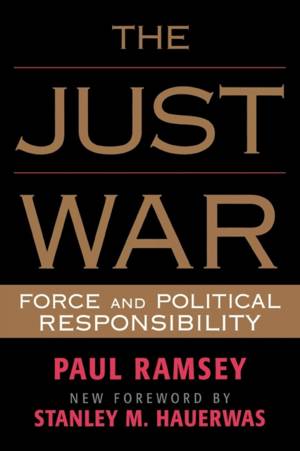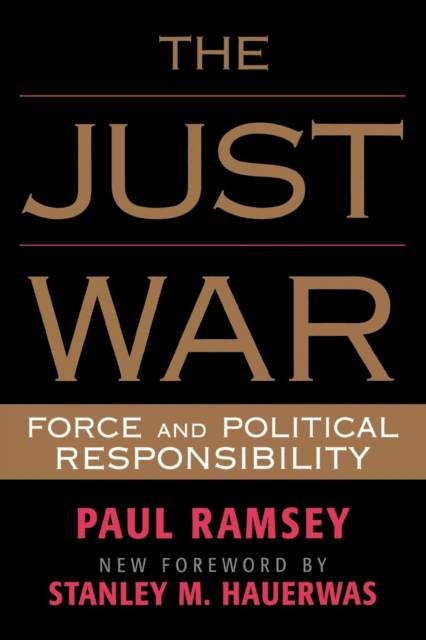
- Afhalen na 1 uur in een winkel met voorraad
- Gratis thuislevering in België vanaf € 30
- Ruim aanbod met 7 miljoen producten
- Afhalen na 1 uur in een winkel met voorraad
- Gratis thuislevering in België vanaf € 30
- Ruim aanbod met 7 miljoen producten
Zoeken
€ 113,95
+ 227 punten
Omschrijving
Recent conflicts, such as the Persian Gulf War of the 1990s and the war against the Taliban in Afghanistan in 2001 show that the idea of what constitutes a 'just war' remains a crucial issue in politics and ethics today. With a new foreword by noted theologian and ethicist Stanley Hauerwas, this classic text on war and the ethics of modern statecraft written at the height of the Vietnam era in 1968 speaks to a new generation of readers. In defending just war against Christian pacifism and arguing against those who maintain that the end justifies the means in the conduct of a war, Ramsey joins a line of theological reasoning that traces its antecedents to Saint Augustine and Saint Thomas Aquinas. Ramsey argues that decisions regarding war must be governed by 'political prudence.' Whether a particular war should be fought, and at what level of violence, depends, Ramsey writes, on one's count of the moral costs and benefits. Characterized by a sophisticated yet back-to-basics approach, his analysis begins with the assumption that force is a fact in political life which must either be reckoned with or succumbed to. He then grapples with modern challenges to traditional moral principles of 'just conduct' in war, the 'morality of deterrence, ' and a 'just war theory of statecraft.'
Specificaties
Betrokkenen
- Auteur(s):
- Uitgeverij:
Inhoud
- Aantal bladzijden:
- 592
- Taal:
- Engels
Eigenschappen
- Productcode (EAN):
- 9780742522329
- Verschijningsdatum:
- 14/05/2002
- Uitvoering:
- Paperback
- Formaat:
- Trade paperback (VS)
- Afmetingen:
- 152 mm x 229 mm
- Gewicht:
- 789 g

Alleen bij Standaard Boekhandel
+ 227 punten op je klantenkaart van Standaard Boekhandel
Beoordelingen
We publiceren alleen reviews die voldoen aan de voorwaarden voor reviews. Bekijk onze voorwaarden voor reviews.











